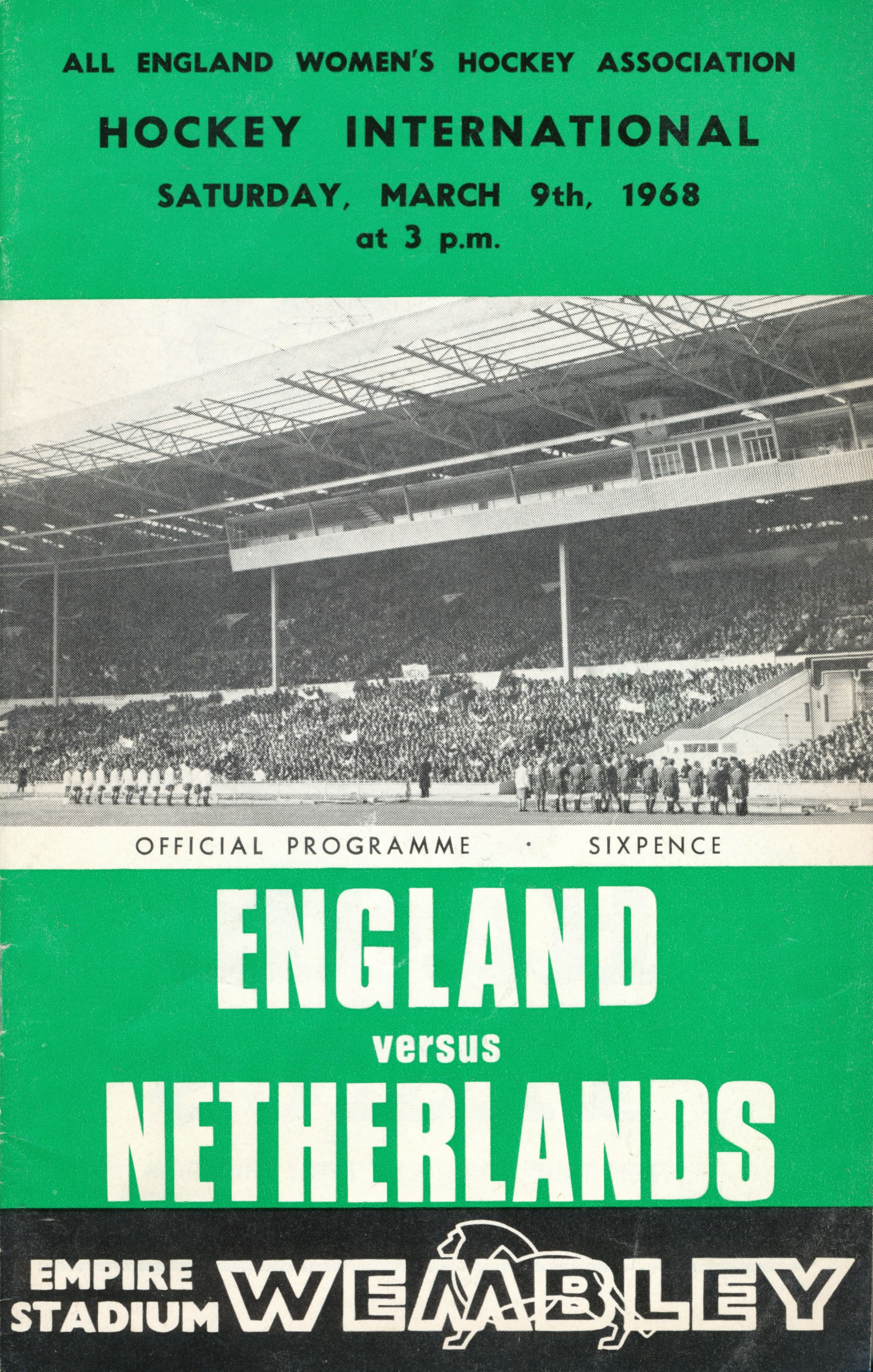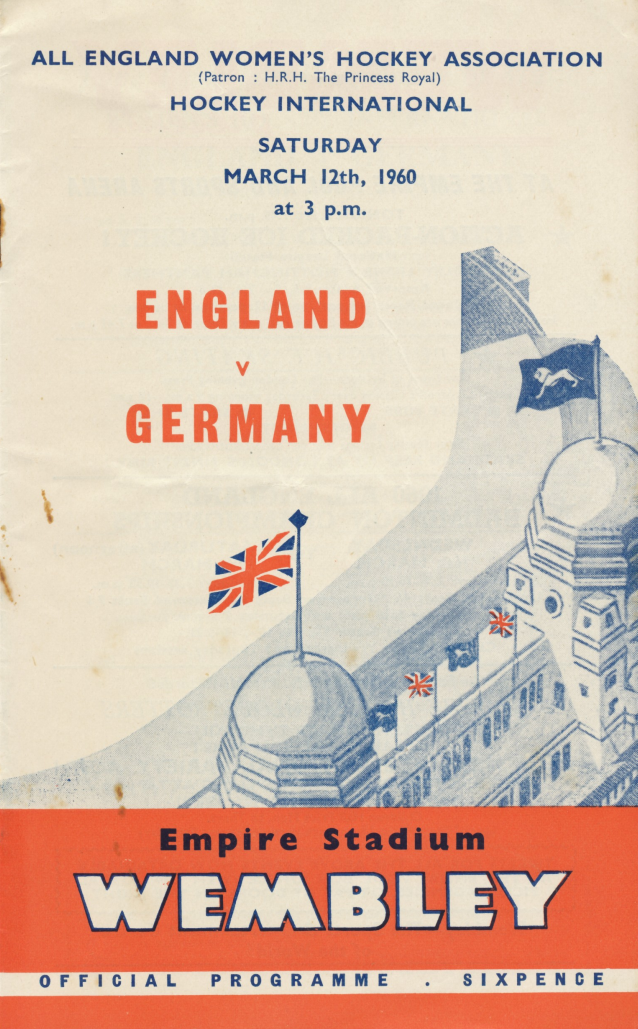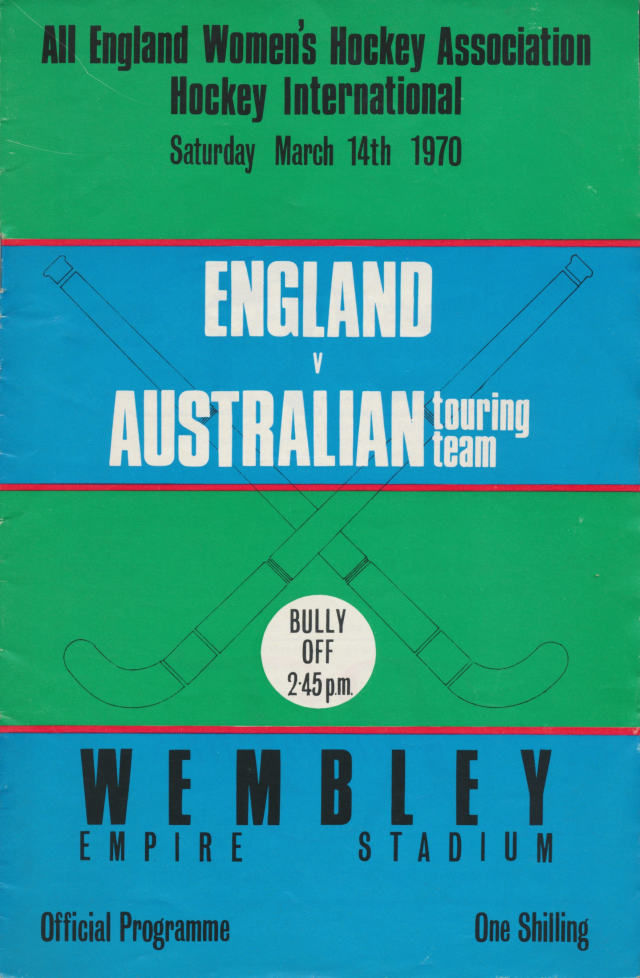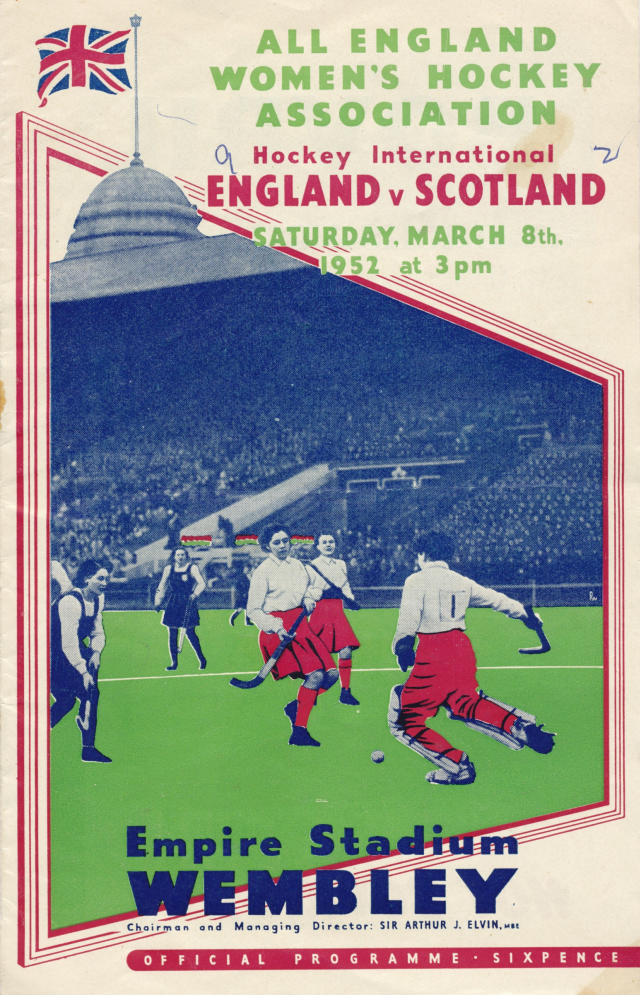Nan Williams gives an overview of an historic series of women's international hockey matches at the Empire Stadium, Wembley, 1951-1991.
Caryl Mary Freeman, a lady I counted as my oldest friend, died in January 2012 aged 103 and a half. She was a lifelong friend and supporter of women's hockey, well known in Somerset and the West, and her hockey records, running from 1930 to 1990, were given to me. This gift opened up hockey history for me as they celebrate the part played by some extraordinary women in the development of women's sport. Caryl's records are now stored with the South West Heritage Trust.
Whilst preserving the integrity of her collection by donating these records locally, her England papers were donated to The Hockey Museum at Woking. Mike Smith, the curator of the Museum, asked me to research the hockey games at Wembley and it was this that introduced me to the All England Women's Hockey Association (AEWHA) Collection at the University of Bath.
What a treasure trove! How many stories can be unearthed!

The women took on the challenge of mounting their annual London international match at the famous Wembley Stadium in 1951, six years after the end of World War II, lured in by the 'magic' of Wembley. They continued to play there until 1991, when the game was no longer played on grass. The revenue from these games helped sustain women's hockey in England. So for forty-one years there was this game to organise and this stadium to fill. Crowds of schoolgirls had a day, or a weekend, out in London, travelling from all over the country by train or coach and they cheered all through the game and sang before and after and generally had a good time. At this time the physical education colleges were providing many international players, and hockey was the game taught in schools as football and rugby for girls were not options.

The Museum and the University hold committee papers - who would have thought that the AEWHA minutes would be so interesting - hand books, newspaper cuttings, programmes, song sheets for community singing, detailed plans for the day, as well as personal records from a number of leading captains and players. A great source for research was The Hockey Field magazines which persuaded all hockey players that it was almost a duty to attend the annual game, and as a result Wembley became an important rendezvous for all women hockey players. The Wembley match programmes give pen portraits of all the players as well the officials, and the officers of the AEWHA.

I learned that most games were televised, that in 1951 the England players had to be introduced to one another at the Friday afternoon practice session, that the whistle could not be heard over the screaming so there were officials with hooters reinforcing the umpires' decisions, that the programmes show how the game developed from 11 individuals to a squad of 16, that the guide to the rules showed when the bully off and the roll on were done away with, that the presence of coaches became more important, that 13 different countries competed against England over the years, that in 1970 the match against Australia had to be moved to the White City because of the soggy condition of the Wembley pitch, that Val Robinson, Jane Sixsmith and Dorrie Arkell always cheered the crowd and that in 1976 there were 68,000 spectators for the game against Scotland?
The Wembley records show forty-one years of hockey history; an uncelebrated story of women's sport that the University can tell because the records have been saved. How will the records of Rio 2016 be viewed in later years?
